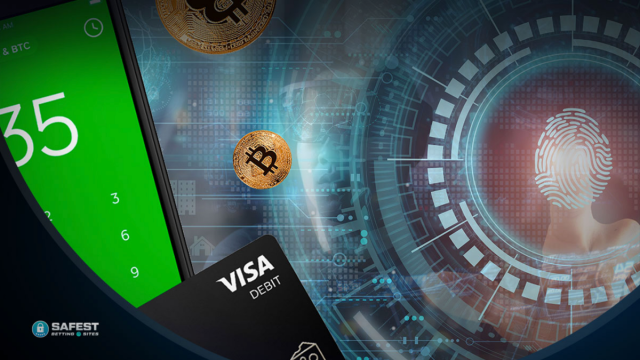A steep rise in online transactions comes from the wide availability of smartphones. As of 2023, over 86% of the world owns a smartphone—or nearly seven billion people.
Between 2000 and 2021, almost half of brick-and-mortar commercial banks in the U.S. closed their doors. In 2022, an estimated 27% of Americans used an online-only bank.
Digital payments worldwide also became more popular during COVID-19. About two-thirds of adults worldwide now use an electronic payment system.
What are some ways to make online transactions secure?
Biometric Authentication Devices
Contents
To protect your financial integrity, consider using a biometric authentication device. These devices include iris or retina scanners, fingerprint or hand readers, and facial recognition software.
If you’ve ever traveled abroad, a country’s immigration department may use biometric devices to keep track of individuals entering their country. Business organizations may also use a biometric authentication system for verification purposes.
You might use biometric authentication to prevent fraud or theft for digital asset protection. Samsung implements iris scanning for its mobile payment platform. Apple allows users to set up Touch ID for their smartphones.
Microsoft and Intel are also encouraging the adoption of biometric authentication systems for their products, as well as mobile banking services.
Encrypted USB Drives
Another form of data protection comes from encrypted USB drives. Data encryption transforms plaintext into ciphertext—with only an authorized user accessing the original information.
For example, you may get data encryption through your bank’s online banking services. They may use it for PDFs of banking statements that include private information. It prevents hackers from seeing any original data.
Encrypted USB drives use software and hardware encryption to protect personal data. Besides encryption, external hardware may also come with a PIN system, like an ATM code or a physical safe.
Those working in the banking sector may require an encrypted USB drive when taking confidential files from the office for remote work at home. You may also keep copies of financial documents on an encrypted USB drive for personal use.
These drives are similar to the next gadget used for secure online transactions.
Hardware Wallets for Cryptocurrency
In 2020 and 2021, cryptocurrencies saw their most popular years among users. Security remains paramount, from a minor crypto project to Layer-1 blockchains like Bitcoin and Ethereum.
The crypto industry experienced monumental crashes and downfalls in 2022. They included the collapse of an entire exchange, FTX, and the $60-billion wipeout of the Luna crypto network.
Those worst-case scenarios highlighted the importance of using hardware or “cold storage” wallets. (A “hot wallet” is one connected to the internet.)
Download a wallet app to set up and store crypto from an exchange like Binance or Coinbase. Transfer your crypto to a hardware wallet with built-in security via an EAL5+ chip separate from a private key or seed phrase.
Crypto continues to grow and expand into the mainstream. It’s popular among gamers and online gamblers who’d prefer to opt out of the traditional banking system.
Offshore casinos that allow crypto deposits and withdrawals include BetUS and Bovada. An online casino like Las Atlantis even provides a unique Bitcoin Casino.
Get a gist of how these casinos work via a Las Atlantis review. Use a variety of crypto elsewhere for fast and secure online transactions.
Cash App (Cash Card)
Another tool for keeping online transactions secure might be the Cash App Cash Card. The app maintains over 50 million downloads on Google Play and 4.5 million ratings on Apple’s App Store.
Use the app for direct deposit through an employer. Send and receive electronic payments from other Cash App users with a unique $Cashtag.
Keep your Cash App account balanced and use the Cash Card for small purchases. (The card acts as a Visa debit card.) If you lose your card or it gets stolen, you’ll get direct access to your account via the Cash App website.
Using a Cash App Cash Card with a low active balance helps to reduce the chance of fraud connected with your bank account.
Laptop Security Lock
One of the simplest ways to protect your online transactions may come from a laptop security lock. They come in handy if you’ve saved financial passwords on your laptop.
Choose a T-bolt lock or an adhesive to prevent your laptop from getting stolen. Keep the laptop lock in place while securing it to a heavy desk.
You can also use keyed or combination locks for desktop monitors, printers, and projectors.
What is the Future of Online Transactions?
The COVID-19 pandemic ushered in the use of online transactions via QR codes. These types of transactions may increase by 240% in the U.S. in 2025.
Contactless payments are already standard worldwide for simple everyday transactions. You can now even withdraw money from your bank without an ATM card.
Using gadgets for online transactions is possible when implementing encryption software. Things like hardware wallets and biometric devices may also become commonplace security measures for sending and receiving money online.
How do you keep your online transactions secure?


